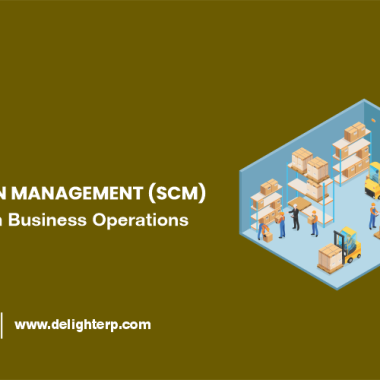Introduction
Many recruitment specialists will tell you that the key to getting suitable candidates is to supply them with enough information. This is especially true of the supply chain management sector, where companies try to match supply chains to client requirements by tracking every step in the way things are delivered from source to demand.
In this book, we’ll consider what’s involved in conducting a supply chain management analysis, including processes, roles, and responsibilities. Supply chain management is a term that is used to describe the complex and constantly changing processes that are necessary to maintain the smooth functioning of an organization.
Processes include sourcing, selecting, packaging, and shipping goods; managing inventory and stock management; ensuring that service and support are provided when required; researching, implementing, and maintaining business solutions; implementing quality control measures and ensuring their effectiveness; maintaining financial accountability for all sales and earnings; ensuring that all staff is assigned appropriately challenging roles that allow them to develop.
What is Operations and Supply Management?
“Operations and supply management” is the process of managing a company’s physical assets. It involves things like fieldwork and research, purchases of input/output supplies such as raw materials, finishing, and shipping, capital goods preparation such as machinery and buildings, and maintenance and upkeep of these assets in order to generate a profit. The profits generated from operations and supply management enable the payment of debts, maintain an adequate cash reserve to cover current needs, provide funding for production activities and investments, and allow for the purchase of additional inputs/output when needed.
The fundamentals of operations and supply management help define how a company manages its inventory, produce goods, and communicates information to customers. A company’s operations and supply management system use estimates, forecasts, control charts, and other information to control inventory, ensure that goods are delivered on time, and communicate information to customers in a timely manner about their products.
Organizational structure is typically centred on a supply chain of some sort; for example, an assembly line. Goods are moved from point A to point B by trucks equipped with proper load facilities and security equipment. Supplies move in the same direction and at the same time as raw materials; transportation time is not included in this process. It determines how resources are used to produce goods and services in competitive markets. Thinking about it from an operational perspective helps managers make strategic decisions that improve business performance and profitability.
Also Read: Accelerate Your Supply Chain Management At Delight ERP
What are the Roles of a Supply Chain Manager and Operations Manager?
The roles of a supply chain manager and operations manager are very different, but share a goal: helping their company maximize profits by getting the most out of its resources and minimizing waste. A supply chain manager oversees the overall flow of goods and products from production through distribution to final consumption. This can include overseeing input (from producers) into the final product (like raw materials), ensuring quality at all stages of the process (like testing), monitoring for quality assurance during analysis and testing, or ensuring that prices are kept competitive across multiple companies.
Their primary objective is to ensure efficient operations and fair market value for Company goods as reflected in the reporting of financial statements and balance sheets. The job duties of a Supply Chain Manager are varied and can include overseeing the scheduling and implementation of vendor contracts, making arrangements for the transportation of materials, maintaining inventory levels on hand, and working with vendors to ensure they are meeting deadlines for materials delivery.
A supply chain manager coordinates the movement of goods from the source to the consumer during a given period of time. He or she coordinates the allocation of resources among suppliers, current customers, factors such as weather and competition, and internal policies designed to maintain consistency and efficiency in the flow of goods. An operations manager coordinates the movement of goods within a company, a process that includes sourcing, selecting materials, installing and testing goods, tracking and supervising shipments and returns.
The operations manager focuses on overall economics and uses economic data to make operational decisions. The two positions share similar duties but their roles are distinctly different. In a supply chain, each department comprises a batch of goods to be shipped to a client; at least one of these departments must be supplying goods to clients directly or indirectly. Supply chain managers monitor the allocation of resources among different departments.
Each has specific duties that define its role in the supply chain across several functional areas. A Supply Chain Manager coordinates the activities of their employees to complete specific tasks within assigned time frames. They ensure accurate inventory control, allocate resources to meet customer demand, and respond to market events. An Operations Manager is responsible for coordinating operations across multiple departments to ensure efficiency and effectiveness in serving their clients and the public as a whole.
They then pass along information to managers who order supplies accordingly. They may also coordinate deliveries with other departments and handle insurance and security clearances. Supply chain managers are primarily in charge of inventory and inventory control. Operations managers coordinate all the necessary steps in building, maintaining, and upgrading a company’s physical infrastructure (warehouse, distribution centres, inventory control software, etc.).
Workers in supply chain management and operations play important roles in improving efficiency and productivity. Upholding high standards of business and personal conduct. Ensuring safe and efficient handling of donated goods, inventory, and equipment at all levels of the organization. In a supply chain, an operations manager oversees the physical goods movement in a company.
They can work with a team to plan and execute physical processes, such as moving goods from warehouses to distribution centres. An operations manager can also help set up vendor networks so inventory can be tracked and managed consistently throughout a given company, as well as oversee storage facilities for collected shipments. In manufacturing, for example, an operations manager oversees production and administration, while a manufacturing engineer helps define processes for various manufacturing technologies.
Also Read: Inventory Management System And The Features You Need!
Conclusion
A supply chain manager coordinates the flow of goods and people between different company locations. He or she also coordinates buying and selling activities at individual sites. Each of these roles plays a key role in optimizing a company’s efficiency through using resources efficiently. An operations manager coordinates the day-to-day activities involved in running manufacturing, mining, logging, or farming operation. A supply chain manager and operations manager are responsible for managing large numbers of employees and contractors that perform various functions within a company.
There are three roles of a supply chain manager and two roles of an operations manager in a supply chain. A supply chain manager oversees the overall direction and performance of a company’s entire supply chain, from raw materials through manufacturing to final sale. Operations managers are responsible for tracking, controlling, and reporting activities within the supply chain to provide a clear picture of how the business is performing.
There are many responsibilities that fall under the supply chain management and operations manager categories. Of these, supply chain management is perhaps the most vital, since it shapes the direction of your business. In operation, you ensure that goods and materials are properly delivered to your intended recipients through an efficient distribution system. You may also be required to take ownership of goods when damaged in transit or during storage.
Supply chain managers and operations managers are responsible for managing a company’s physical presence in retailers, distribution facilities, and manufacturing facilities. They make sure inventory, product development, project management, and fulfilment operations are carried out efficiently across a number of locations. They ensure effective coordination between the various departments, such as finance, marketing, human resources, and facility management.





